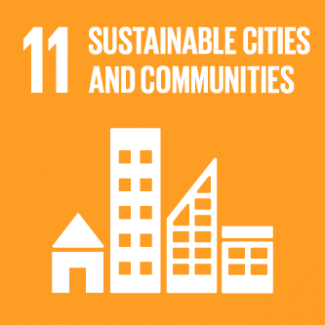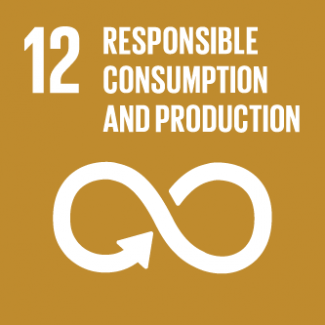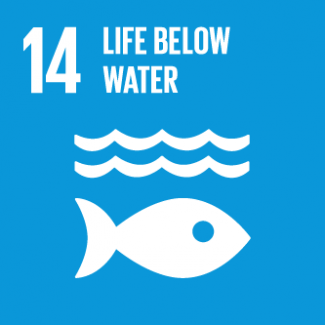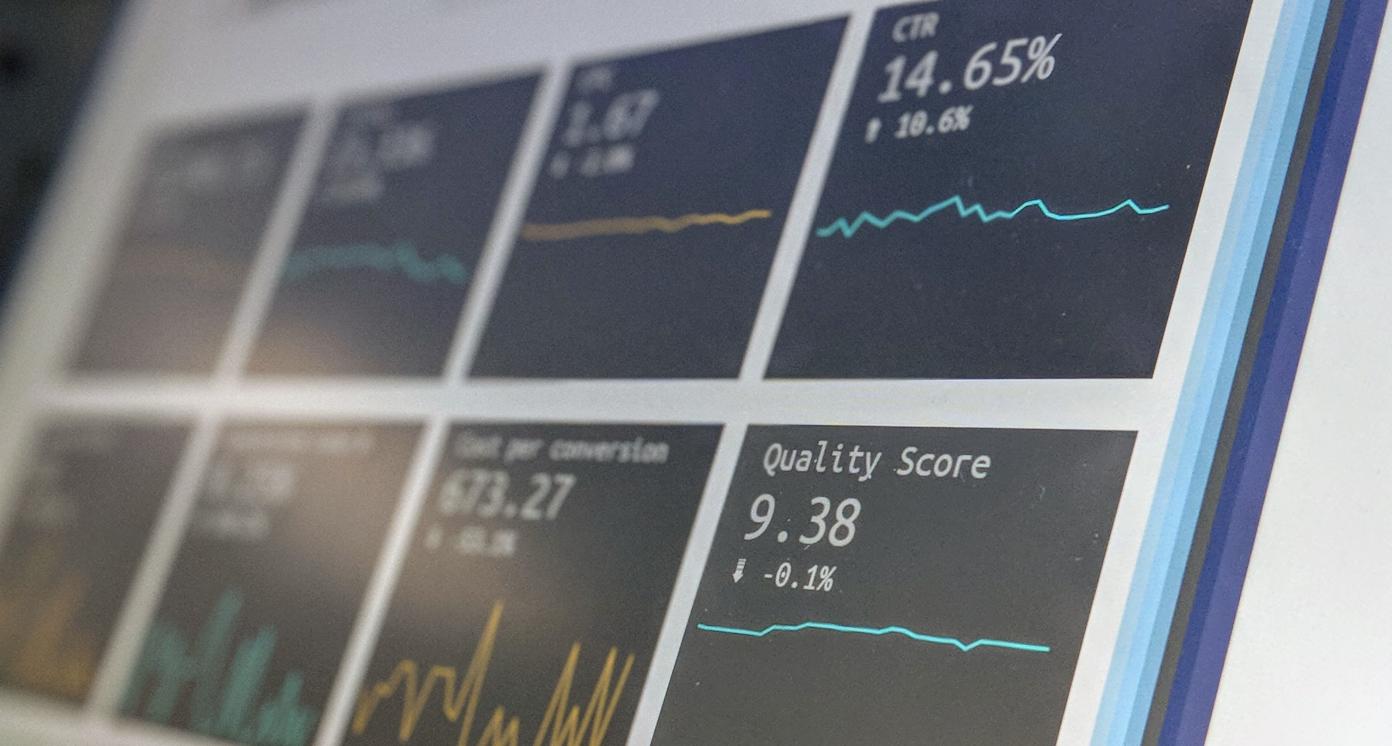Waste Management Systems and Platform



Business Model Description
Through B2B and B2C models, companies can develop digital platform for waste management system that use data analytics and digital technology to increase efficiency in waste segregation, collection, transportation, and recycling.
This IOA will help reduce cost of waste management for businesses and municipalities help encourage more waste segregation and recycling for households and help the planet by reducing marine plastic pollution and air pollution from open burning. Investors can invest money in the companies that develop the waste management system and platform. Examples of companies active in this space are:
G.E.P.P. SA-ARD Co.,Ltd (GEPP) is a start-up, established in 2017 that provides a waste data management system for businesses via an online platform. The platform provides valuable insight into the quantity of waste generated and recycled, breakdown by types, revenue, and GHG emission reduction. GEPP also provides waste collection services that utilize networks of informal waste collectors. GEPP has created USD 11,300 (THB 338,000) revenue for stakeholders in 2020, and reduced 642 tons of waste (1).
Koomkah application, developed by SCG Chemical in 2020, provides waste management solutions for waste bank businesses. Benefits include better planning, more efficient database, and a connection to networks of waste management facilities (8).
"ซาเล้ง.com" (Sa-Leng: Tricycle in Thai) is an online platform and application. It was an initiative idea during 2017, it was launched the service officially in 2020. Users can call on the network of informal trash collectors to pick-up recyclable waste or unwanted items at the specified location, in Bangkok. Users are incentivized by the platform own's digital currency (14).
Trash Lucky is an online platform, started in 2019 where individuals can send in their recyclable wastes to win lottery rewards. Trash Lucky was recyclable more than 5,000 kilograms after 8 months of service (19).
Expected Impact
This IOA helps reduce pollution and improve efficiency of waste management and recycling by enabling better data management and economies of scale.
How is this information gathered?
Investment opportunities with potential to contribute to sustainable development are based on country-level SDG Investor Maps.
Disclaimer
UNDP, the Private Finance for the SDGs, and their affiliates (collectively “UNDP”) do not seek or solicit investment for programmes, projects, or opportunities described on this site (collectively “Programmes”) or any other Programmes, and nothing on this page should constitute a solicitation for investment. The actors listed on this site are not partners of UNDP, and their inclusion should not be construed as an endorsement or recommendation by UNDP for any relationship or investment.
The descriptions on this page are provided for informational purposes only. Only companies and enterprises that appear under the case study tab have been validated and vetted through UNDP programmes such as the Growth Stage Impact Ventures (GSIV), Business Call to Action (BCtA), or through other UN agencies. Even then, under no circumstances should their appearance on this website be construed as an endorsement for any relationship or investment. UNDP assumes no liability for investment losses directly or indirectly resulting from recommendations made, implied, or inferred by its research. Likewise, UNDP assumes no claim to investment gains directly or indirectly resulting from trading profits, investment management, or advisory fees obtained by following investment recommendations made, implied, or inferred by its research.
Investment involves risk, and all investments should be made with the supervision of a professional investment manager or advisor. The materials on the website are not an offer to sell or a solicitation of an offer to buy any investment, security, or commodity, nor shall any security be offered or sold to any person, in any jurisdiction in which such offer would be unlawful under the securities laws of such jurisdiction.
Country & Regions
- Thailand: Countrywide
- Thailand: Countrywide
- Thailand: Countrywide
Sector Classification
Infrastructure
Gender inequalities and marginalization issues
Waste pickers contribute to the circular economy but are informal workers without any social protection. A study conducted by the Stockholm Institute of Environment showed that waste pickers earn an average of USD 8.99 per day (THB 269.7 per day), which is lower than the minimum wage of USD 10 per day (THB 300 per day).
Most of the waste pickers work 7 days a week and work during the daytime to avoid police, especially females who work during the day for safety. (3)
Policy priority
One of the national priorities is the BCG Model (Bio, Circular, and Green Economy), which aims to promote municipal solid waste management at the community level, and also develop the technology to improve waste management efficiency and convert waste to energy (2).
Gender inequalities and marginalization issues
Waste pickers contribute to the circular economy but are informal workers without any social protection. A study conducted by the Stockholm Institute of Environment showed that waste pickers earn an average of USD 8.99 per day (THB 269.7 per day), which is lower than the minimum wage of USD 10 per day (THB 300 per day).
Most of the waste pickers work 7 days a week and work during the daytime to avoid police, especially females who work during the day for safety. (3)
Investment opportunities introduction
Low waste recycling rate (33% in 2019) and urban population growth (51.43% of the total population in 2020) meant that the waste supply is growing along with higher demand for better and more efficient waste management systems and infrastructure (4), (5), (6).
Key bottlenecks introduction
Major challenges are the lack of private investment waste management (5). In 2019, among the 355 waste disposal sites with proper management, 29 sites or 8% are privately operated (4).
Waste Management
Development need
In 2019, there were a total of 2,274 functioning waste disposal sites, but only 355 or 15.6% have proper waste management, which includes sanitary landfill, engineer landfill, control dump, waste-to-energy landfill, compost, mechanical biological treatment, and refuse-derived fuel (RDF) (4).
Policy priority
The National Solid Waste Management Master Plan (2016-2021) aims to reduce the quantity of waste by reducing single-use plastic, increasing reusable materials, and promoting waste segregation for recycling. It also aims to improve the effectiveness of waste management with economies of scale, waste transport, regulations, and awareness raising (7).
Gender inequalities and marginalization issues
Women are among the most vulnerable group of informal waste pickers, getting less pay than male waste pickers, exposed to social stigma, and health hazards (5). A study by the Stockholm Institute of the Environment surveyed 34 informal waste pickers with male earning 35% more than female waste pickers (8).
Investment opportunities introduction
In 2018, only 17.6% of key plastic resins, e.g., PET, were being recycled, which is below the 22% target of the National Plastic Waste Management Roadmap 2018-2030. With this, 2.88 million tons of plastic were discarded instead of recycled, costing USD 3.6 billion or 87% of the material value of plastics in Thailand (9).
Key bottlenecks introduction
Although certain waste management infrastructure currently exists, cost-effectiveness remains an issue for certain types of waste, such as snack bags and plastic bags. They are feasible for recycling only if they are separated by households.
From waste collection methods, snack bags and plastic bags make up less than 5% of recyclable wastes collected from households or at the source, while it is 0% for waste collected by waste pickers, scavengers, or sorting by the waste collection trucks (10).
Waste Management
Pipeline Opportunity
Waste Management Systems and Platform
Through B2B and B2C models, companies can develop digital platform for waste management system that use data analytics and digital technology to increase efficiency in waste segregation, collection, transportation, and recycling.
This IOA will help reduce cost of waste management for businesses and municipalities help encourage more waste segregation and recycling for households and help the planet by reducing marine plastic pollution and air pollution from open burning. Investors can invest money in the companies that develop the waste management system and platform. Examples of companies active in this space are:
G.E.P.P. SA-ARD Co.,Ltd (GEPP) is a start-up, established in 2017 that provides a waste data management system for businesses via an online platform. The platform provides valuable insight into the quantity of waste generated and recycled, breakdown by types, revenue, and GHG emission reduction. GEPP also provides waste collection services that utilize networks of informal waste collectors. GEPP has created USD 11,300 (THB 338,000) revenue for stakeholders in 2020, and reduced 642 tons of waste (1).
Koomkah application, developed by SCG Chemical in 2020, provides waste management solutions for waste bank businesses. Benefits include better planning, more efficient database, and a connection to networks of waste management facilities (8).
"ซาเล้ง.com" (Sa-Leng: Tricycle in Thai) is an online platform and application. It was an initiative idea during 2017, it was launched the service officially in 2020. Users can call on the network of informal trash collectors to pick-up recyclable waste or unwanted items at the specified location, in Bangkok. Users are incentivized by the platform own's digital currency (14).
Trash Lucky is an online platform, started in 2019 where individuals can send in their recyclable wastes to win lottery rewards. Trash Lucky was recyclable more than 5,000 kilograms after 8 months of service (19).
Business Case
Market Size and Environment
> USD 1 billion
In 2018, only 17.6% of key plastic resins were being recycled. This meant that 2.88 million tons of plastic were discarded instead of recycled and cost 3.6 billion USD or 87% of the material value of plastics in Thailand (2).
Indicative Return
15% - 20%
According to expert interviews, waste management IOAs can be less attractive to other businesses and consumers as there are low incentives for waste management without stringent regulations. In addition, consumers can be price sensitive with regards to waste management depending on public awareness.
Investment Timeframe
Medium Term (5–10 years)
Waste management systems and platforms have varying investment timeframes depending on the business model.
According to expert interviews, business to business model can have a 4 year timeframe while business to consumer model have a more than 5 year timeframe, due to high marketing costs in creating traction among consumers and users.
Ticket Size
USD 1 million - USD 10 million
Market Risks & Scale Obstacles
Capital - Requires Subsidy
Capital - Limited Investor Interest
Business - Supply Chain Constraints
Impact Case
Sustainable Development Need
In 2019, according to the Pollution Control Department, Thailand generated 25.37 million tons of municipal solid waste with only 36% of the total being properly managed, and 33% of the total being recycled (3).
The remaining 31% of municipal solid waste are often illegally disposed of by open dumping, leading to marine plastic pollution, and open burning, contributing to air pollution (3).
In 2016, it was estimated that 51,000 tons of plastic waste ended up in Thai waters each year, contributing to marine plastic pollution (15).
Gender & Marginalisation
Wealthy areas have more access to better waste management system than urban slums and rural areas.
Women are among the most vulnerable group of informal waste pickers, getting less pay than male waste pickers, exposed to social stigma, and health hazards (9).
"Women do not have equal input into the allocation of family finances. In the case of waste management, a woman might be willing to spend household income on waste disposal to make it more convenient for her work, but her husband may object. (16)"
Expected Development Outcome
As an example of outcomes from a waste management platform, G.E.P.P. SA-ARD Co.,Ltd have helped its customers to reduce a total of 642 tons of waste disposal to landfill. This meant that the waste disposal reduction increased from 11% to 58% within 10 months (1).
When waste is properly and efficiently segregated, economies of scale can be achieved in increase feasibility of recycling of low value wastes, such as flexible plastic.
Effective waste management will retain a higher proportion of plastic waste within the circular economy value chain, and will reduce marine plastic pollution.
Gender & Marginalisation
More effective and efficient of waste management system can help reduce waste in rural areas.
OECD research shows that women tend to have more sustainable consumption patterns, and reuse and recycle more than men.
This IOA has potentials to make waste recycling more convenient thus reducing the household workload and can be actively participated by all genders.
Primary SDGs addressed

11.6.1 Proportion of municipal solid waste collected and managed in controlled facilities out of total municipal waste generated, by cities
In 2019, only 36% of the total municipal solid waste are being properly managed (3).
According to the National Waste Management Master Plan (2016-2021), more than 75% of municipal solid waste should be properly disposed of by 2021 (4) and there is no target level as the Master Plan ended in 2021. Thailand has set target for overall waste management index that include municipal solid waste, infectious waste and hazardous waste to be 0.95 by 2037 (waste management index was at 0.63 in 2018) (http://nscr.nesdb.go.th/wp-content/uploads/2019/12/%E0%B8%AA%E0%B8%A3%E0%B8%B8%E0%B8%9B%E0%B9%80%E0%B8%9B%E0%B9%89%E0%B8%B2%E0%B8%AB%E0%B8%A1%E0%B8%B2%E0%B8%A2-Update-04-12-2562.pdf).

12.4.2 (a) Hazardous waste generated per capita; and (b) proportion of hazardous waste treated, by type of treatment
12.5.1 National recycling rate, tons of material recycled
In 2020, 1.23 tons of hazardous waste was safely disposed of in Thailand, from an original goal of 1.35 tons (10).
In 2019, 8.36 million tons or 33% of municipal solid waste was recycled, out of a total of 25.37 million tons (3).
According to the National Waste Management Master Plan (2016-2021), 100% of all hazardous industrial waste and more than 30% of municipal hazardous waste should be collected and properly disposed of by 2020 (4).
According to the Roadmap on Plastic Waste Management (2018 - 2030), 100% of target plastic waste will be recycled by applying the Circular Economy Principle by 2027 (17).
Secondary SDGs addressed

Directly impacted stakeholders
People
Gender inequality and/or marginalization
Planet
Corporates
Public sector
Indirectly impacted stakeholders
People
Gender inequality and/or marginalization
Corporates
Public sector
Outcome Risks
Informal waste pickers help reduce municipalites' waste collection cost by an estimated USD 16.7 million (THB 500 million) (5). The IOA may exclude informal waste collectors and affect their income.
Gender inequality and/or marginalization risk: Recycling activities can be more concentrated in wealthier cities or industrial areas, and have less coverage for rural areas or urban slums that have less income.
Impact Risks
External risk: Decline in oil prices and the associated decrease in cost of virgin plastic can affect the cost effectiveness of recycling.
Stakeholder participation risk: Awareness and participation of individuals in waste segregation can greatly affect the efficiency of waste management.
Evidence Risk: Waste management data or recycling capacity data are insufficient.
Gender inequality and/or marginalization risk: Women generally have lower employment opportunities in waste management businesses, which is not addressed by this IOA. (16)
Impact Classification
What
Increase efficiency and effectiveness of waste management and increase waste recycling/recovery.
Who
Communities have better health and well-being from an investment in waste management, and also reduces environmental problems including air pollution and marine plastic pollution.
Risk
Increase in economy of scale in both waste collection, management, and recycling can benefit large players more than small players, such as informal waste pickers.
Contribution
Additional contribution is likely much better than base case as waste management system in Thailand needs a lot of improvement.
How Much
Scale: 2.88 million tons of plastic were discarded in 2018, which can be recycled instead through effective waste management system, while only 33% of municipal solid waste were recycled in 2019 (2, 3). Depth: Only 15.6% of functioning waste d
Impact Thesis
This IOA helps reduce pollution and improve efficiency of waste management and recycling by enabling better data management and economies of scale.
Enabling Environment
Policy Environment
National Solid Waste Management Master Plan 2016-2021: Aims to improve effectiveness and efficiency of the waste value chain through waste segregation, economies of scale, and better regulations that incentivize proper waste management (4).
Digital Economy Promotion Agency Master Plan 2018-2022: Aims to promote digital transformation in businesses, drive growth for start-ups, and develop smart cities, which are driving factors for this IOA (11). This policy supports the IOA by promoting innovation that include waste management technology and systems.
Roadmap on Plastic Waste Management 2018-2030: Sets 100% recycling rate for targeted plastic waste by 2027 (17). This policy supports the IOA by driving government to make investment in the IOA to achieve the target.
National Action Plan for Plastic Waste Management: Aims to reduce plastic waste by reduction of plastic waste at sources, reduction of single-use plastic at consuption process, and post consumption plastic waste management (20). This policy supports the IOA by promoting waste management system and platform to help reduce plastic waste and increase waste management efficiency.
Hanoi 3R Declaration - Sustainable 3R Goals for Asia and the Pacific 2013-23: Aims to foster international cooperation in waste management and best practice sharing (22). This policy supports the IOA by helping provide knowledge sharing between different countries and companies, and even give opportunities for the IOA to be implemented in other countries.
Financial Environment
Financial incentives: Digital Economy Promotion Agency's (DEPA) Digital Transformation Fund provides up to USD 100,000 (3 million baht) for digital transformation projects including AI, intelligent applications, internet of things, digital platform, etc (7).
Fiscal incentives: Board of Investment (BOI) Promotion provides 5 or more years of Corporate Income Tax exemption, import duty exemption on machinery and raw materials, and other non-tax incentives for digital services (12).
Other incentives: Board of Investment (BOI) Promotion provides 8 or more years of Corporate Income Tax exemption, import duty exemption on machinery and raw materials, and other non-tax incentives for smart city system development specific to smart environments (12).
Regulatory Environment
Enhancement and Conservation of National Environmental Quality Act 1992 requires planning for environmental management, monitoring environmental quality, and allows for local authorities to invest and operate waste disposal facilities (6). This regulation supports the IOA by driving government to invest in waste management systems and platforms.
Public Health Act 1992 allows for local authorities to oversee management of and maintain the collection, transportation, and disposal of sewage and solid waste within the locality (6). This regulation supports the IOA by enabling local governments to make investment in waste management systems and platform.
Act on the Maintenance of the Cleanliness and Orderliness of the Country 1992 prohibits littering in public spaces and in waterways. In 2017, it was amended to allow local authorities to collect and manage waste under supervision of provincial authorities and the Ministry of Interior (18).
This regulation is supports the IOA by giving local government independence in investing in waste management systems and platform.
Notification of the Ministry of Public Health No.295 (2005) regulates qualities for containers made from plastic. Clause 8 prohibits the use of plastic containers made from re-used plastic except for using to pack fruits with a peel, meaning that water bottles must be made from virgin plastic (21).
This regulation is an obstacle to the IOA as it prevents used plastic bottles or packaging from being recycled.
Foreign Business Act (FBA) 1999 stipulates eligibility criteria for foreign businesses in Thailand. Renewable energy production is not restricted by FBA, but foreign businesses must obtain a BOI investment promotion certificate to own land used in energy production (23). This regulation is relevant to the IOA as foreign investment in the IOA must follow the legal requirements.
Marketplace Participants
Private Sector
Waste management platform providers (G.E.P.P. SA-ARD Co.,Ltd.), businesses that demand the platform (IRPC, Dow, Tetra Pak, Asset Wise, and Samitivej Hospital), recycling plant operators (Indorama Ventures, and Ecoblue), online influencers (Environman and ลุงซาเล้งกับขยะที่หายไป)
Government
Pollution Control Department (PCD), Department of Environmental Quality Promotion (DEQP), Board of Investment (BOI), Digital Economy Promotion Agency (DEPA), Bangkok Metroplitan Area (BMA), municipalities responsible for waste management for local districts (13).
Multilaterals
Asian Development Bank (ADB), International Finance Corporation (IFC)
Non-Profit
Trash Hero, Thailand Institute of Packaging and Recycling Management
Public-Private Partnership
Public Private Partnership for Sustainable Plastic and Waste Management, NIA Deep Tech Incubation Program
Target Locations
Thailand: Countrywide
Thailand: Countrywide
Thailand: Countrywide
References
- (1) https://s3.amazonaws.com/sustainabledevelopment.report/2021/2021-sustainable-development-report.pdf
- (2) http://stiic.sti.or.th/wp-content/uploads/2018/10/BCG_Final1.pdf
- (3) https://cdn.sei.org/wp-content/uploads/2021/07/210719a-mckay-caparas-2106i.pdf
- (4) https://www.pcd.go.th/publication/14745/
- (5) https://www.sea-circular.org/news/advancing-womens-rights-and-tackling-marine-plastic-pollution-in-south-east-asia/
- (6) https://data.worldbank.org/indicator/SP.URB.TOTL.IN.ZS?locations=TH
- (7) http://infofile.pcd.go.th/waste/WasteMasterPlan.pdf?CFID=1614347&CFTOKEN=55860890
- (8) https://cdn.sei.org/wp-content/uploads/2021/07/210719a-mckay-caparas-2106i.pdf
- (9) https://openknowledge.worldbank.org/bitstream/handle/10986/35114/Market-Study-for-Thailand-Plastics-Circularity-Opportunities-and-Barriers.pdf?sequence=1&isAllowed=y
- (10) https://wwfint.awsassets.panda.org/downloads/zero_plastic_waste_in_thailand_en.pdf
- (1) https://gepp.me/en/
- (2) https://openknowledge.worldbank.org/bitstream/handle/10986/35114/Market-Study-for-Thailand-Plastics-Circularity-Opportunities-and-Barriers.pdf?sequence=1&isAllowed=y
- (3) https://www.pcd.go.th/publication/14745/
- (4) http://infofile.pcd.go.th/waste/WasteMasterPlan.pdf?CFID=1614347&CFTOKEN=55860890
- (5) https://cdn.sei.org/wp-content/uploads/2021/07/210719a-mckay-caparas-2106i.pdf
- (6) https://www.waste.ccacoalition.org/sites/default/files/files/bangkok_-_city_profile_final_draft_03102015_0.pdf
- (7) https://www.depa.or.th/th/smart-city-plan
- (8) https://thaipublica.org/2020/10/application-koomkah-smart-manifest/
- (9) https://www.sea-circular.org/news/advancing-womens-rights-and-tackling-marine-plastic-pollution-in-south-east-asia/
- (10) https://sustainabledevelopment.un.org/content/documents/279482021_VNR_Report_Thailand.pdf
- (11) https://www.depa.or.th/storage/app/media/file/depa-Promotion-Plan-Book61-65.pdf
- (12) https://www.boi.go.th/upload/content/BOI-A%20Guide_EN.pdf
- (13) http://infofile.pcd.go.th/waste/AIT060509_sec4.pdf
- (14) https://media.xn-72ch2f5bwdtc.com/statics/articles/%E0%B8%9B%E0%B8%A3%E0%B8%B0%E0%B8%A7%E0%B8%B1%E0%B8%95 %E0%B8%B4%E0%B8%84%E0%B8%A7%E0%B8%B2%E0%B8%A1%E0%B9%80%E0%B8%9B%E0%B9%87%E0%B8%99%E0%B8%A1%E0%B8%B2.html
- (15) https://oceanconference.un.org/commitments/?id=18208
- (16) https://www.oecd.org/dac/gender-development/1849277.pdf
- (17) https://www.pcd.go.th/wp-content/uploads/2021/10/pcdnew-2021-10-19_08-59-54_995414.pdf
- (18) http://web.krisdika.go.th/data/document/ext809/809966_0001.pdf
- (19) https://www.greenery.org/articles/trash-lucky/
- (20) https://www.iges.or.jp/sites/default/files/inline-files/S1-5_PPT_Thailand%20Plastic%20Action%20Plan.pdf
- (21) http://food.fda.moph.go.th/law/data/announ_moph/V.English/No.295-48%20Qualities%20or%20standard%20for%20container%20made%20from%20plastic.pdf
- (22) https://sdgs.un.org/sites/default/files/2020-11/UNCRD_10th%203R%20Forum%202020_Country%20Report_Thailand.pdf
- (23) https://www.dbd.go.th/dbdweb_en/ewt_dl_link.php?nid=4047















